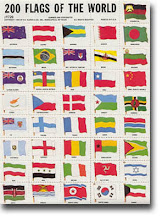Please email me your answers at khofheimer@ecpi.edu. Due by next Tuesday, Feb. 19 at 6 pm. You may use your notes and/or books. You may use search engines or other internet or intranet resources, but please DO NOT COPY AND PASTE OR PLAGIARIZE!
POL 200 pre-test:
Part 1: Essay
Please select one question and answer all parts of each in essay form. Each essay should be about one to one and a half pages long and well-organized, with a descriptive title, engaging introduction, well-developed body paragraphs, and satisfying conclusion.
1. Compare two of the following thinkers and discuss either how they are alike in surprising ways or how they differ in important ways: Thucydides, Clausewitz, Kant, Grotius, Machiavelli, Wilson, Morgenthau.
2. In your opinion, what is the most important IGO today? Explain.
3. Do you think globalization weakens or strengthens the state (country)? Discuss
4. Why is the United Nations seen as increasingly irrelevant by EDCs such as the U.S.? Explain.
5. Is`history cyclical in your opinion. Describe.
Part 2: Short Answer
Please answer each of the following, using complete sentences.
6. What is meant by the term “domestic support” in relation to a state’s leadership?
7. What is the difference between a cosmetic and a substantive democracy?
8. How and why are democracy and a nation’s wealth correlated?
9. What is the World Trade Organization? The World Bank? The International Monetary Fund?
10. What is the United Nations and what does it do?
11. Does the European Union have a promising future? Why or why not? (This is opinion, but briefly support your position).
12. Four statesman will be gathering for dinner at the Whitehouse, including guests from China, Russia, and India,. As the event planner, how would you handle this affair? What food would you serve and why?
Short Answer
Please answer each of the following, using complete sentences.
13. Explain some of the causes of war from the structural or system level.
14. What are some individual level causes of war?
15. What five or six attributes constitute a state? Which two aside from the obvious are most important in your opinion?
16. Why is international law sometimes politically contentious? How does this relate to the issue of sovereignty?
17. What challenges does the European Union face today? 18. From a political science perspective, what constitutes power in today’s world? Why does the United States have so much, relatively speaking? In your answer, mention the concepts of hard and soft power as they relate.
Part 3: True/False
Please write the word “True” or “False” for each of the following.
19. After World War I, LDCs formally established the World Bank and the
International Monetary Fund.
20. Mercantilism was inspired by Frederick Hayek.
21. Laissez-faire advocates do not favor subsidies, tariffs, and quotas to free trade,
generally speaking.
22. The post-Soviet Union “new world order” advocated by former President George
Herbert Walker Bush did not prescribe a bipolar state system similar to the one in
place during the Cold War.
23. Francis Fukuyam wrote of the “clash of civilizations” that would characterize the post-Cold War era.
24. The democratic peace thesis contends that democracies often fight one another.
25. Making international laws that states abide by is a very simple task.
26. The Bush doctrine refutes the viability of preemptive strikes.
27. Amartaya Sen prescribes a bottoms-up approach to solving global poverty.
28. The signing of NAFTA was not motivated by mercantilist goals.
Part 4: Multiple Choice
Please select the correct answer to the following questions.
29. All of the following are characteristics of the Bush doctrine except
endorses America’s right to lead
supports preemptive strikes
believes in deterrence at all costs
was used to justify recent strikes in Afghanistan and Iraq
30. The United States is known globally for its
unwillingness to endure death of its own
lack of respect for United Nations’ decisions
popular celebrity culture
all of the above
31. The modern nation-state was established under which of the following:
Treaty of Paris
Treaty of Westphalia
Treaty of Versailles
Treaty of Rome
32. The U.S. policy towards the Soviet Union during the Cold War, as laid out by NSC 68, was:
Retribution
Containment
Appeasement
Democratization
33. Which of the following best describes international law?
it is in its primitive stages
it is very evolved
it is uniformly applied
most countries agree to its system and procedures
Part V: Short answer: in a paragraph or two, please answer the following:
1. How does globalization affect (or potentially affect) the technology idustry in positive ways?
2. How does globalization affect (or potentially affect) the technology industry in negative ways?
Tuesday, February 12, 2008
Subscribe to:
Post Comments (Atom)



No comments:
Post a Comment